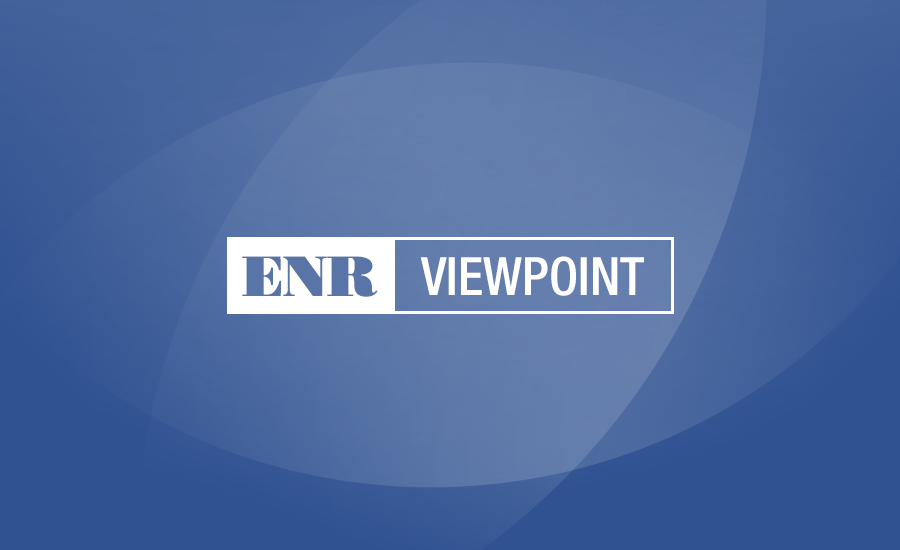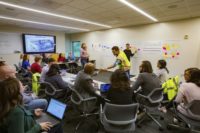
Bob Clark
As someone who has never had much interest in education in the traditional sense —I lasted about five weeks before dropping out of college—most of my valued knowledge and experience has come from working with and around people. So I believe there is no substitution for collective innovation that comes from people collaborating in a shared space. A work-from-home-only policy doesn’t support that or the goals of inclusivity and diversity that we believe in.
A key differentiator for Clayco, which I founded, is that its culture is actually developed by direct contributions from employees on an open-book platform with a focus on people first. To attract and retain the best and brightest, there has to be accountability and shared ownership in the strategy, the profit and the culture.
Since Clayco’s founding, there has been an enormous amount of listening. This has led us to safety, inclusivity and community as our core tenets. This type of organization can’t be built with a work-from-home-only policy.
According to the Harvard Business Review, much information sharing happens through short, informal discussions during the workday—and that’s what I’ve seen. These underrated office opportunities are the backbone of corporate culture, and they improve work satisfaction. No application or technology can imitate connection and creativity-sparked learning from each other face-to-face. Teams do their best work when members are together in the office and where everyone can be represented and add to the culture.
In Microsoft’s 2022 New Future of Work Report, researchers found that while remote work may improve job satisfaction, it can also lead to employees feeling socially isolated, guilty and trying to overcompensate. After years of forced isolation due to the global pandemic, we have witnessed the impact on mental health when people cannot share experiences. Feelings of isolation create emotional distress and can worsen health woes.
Developing connections between people takes time and effort—and simply can’t be effectively done through a screen. Conducting all business and operations remotely online can also lead to digital burnout and feelings of anxiety, exhaustion and apathy caused by too much time on digital devices. Returning to a physical workplace, with more in-person interactions and a balanced workday, allows people to feel safer.
Moving from traditional places of employment to home offices decreases productivity and further isolates individuals who are already struggling—whether that is mentally, physically or for those who have difficulty achieving equitable representation. Prioritizing diversity, equity and inclusion should be a fundamental of any venture.
Giving people a voice in every aspect of operations, especially those who belong to underrepresented demographics in construction, is the only way to foster innovation and positively transform our communities. Multicultural professionals, including Hispanic, Asian and Black individuals, only hold 14% of senior executive and manager positions in corporate America. For minorities who have fought so hard for a seat at the table, work-from-home is another barrier and setback on their journey to belong.
At Clayco, we are a melting pot of people from all over the world, from different backgrounds and educations, and we cannot reach our full ambitions via virtual chat rooms in the kitchen. We need collaborative spaces and teammates pulling for each other to reach our potential.
Black and Hispanic students entering the workforce also felt significantly less comfortable with remote jobs than white students, according to a WayUp survey in April 2020. This discrepancy could be due to limited space or access to technology, but digital inequality poses yet another hurdle in our quest to expand inclusivity. As employers and leaders, we must work to close the gap in equity and resource.
If we are to create meaningful opportunities for our employees and people within the neighborhoods we serve, we must do so by taking the time to get to know each other and combine our ambitions and resources to facilitate meaningful change. Leaders need to build diverse, respectful and safe workplaces for all where individuals can accomplish their dreams with the support and innovative tools around them. For better health, opportunities and business, let’s get back to the non-virtual office.
Bob Clark is the founder and executive chairman of Chicago-based Clayco Inc.




Post a comment to this article
Report Abusive Comment